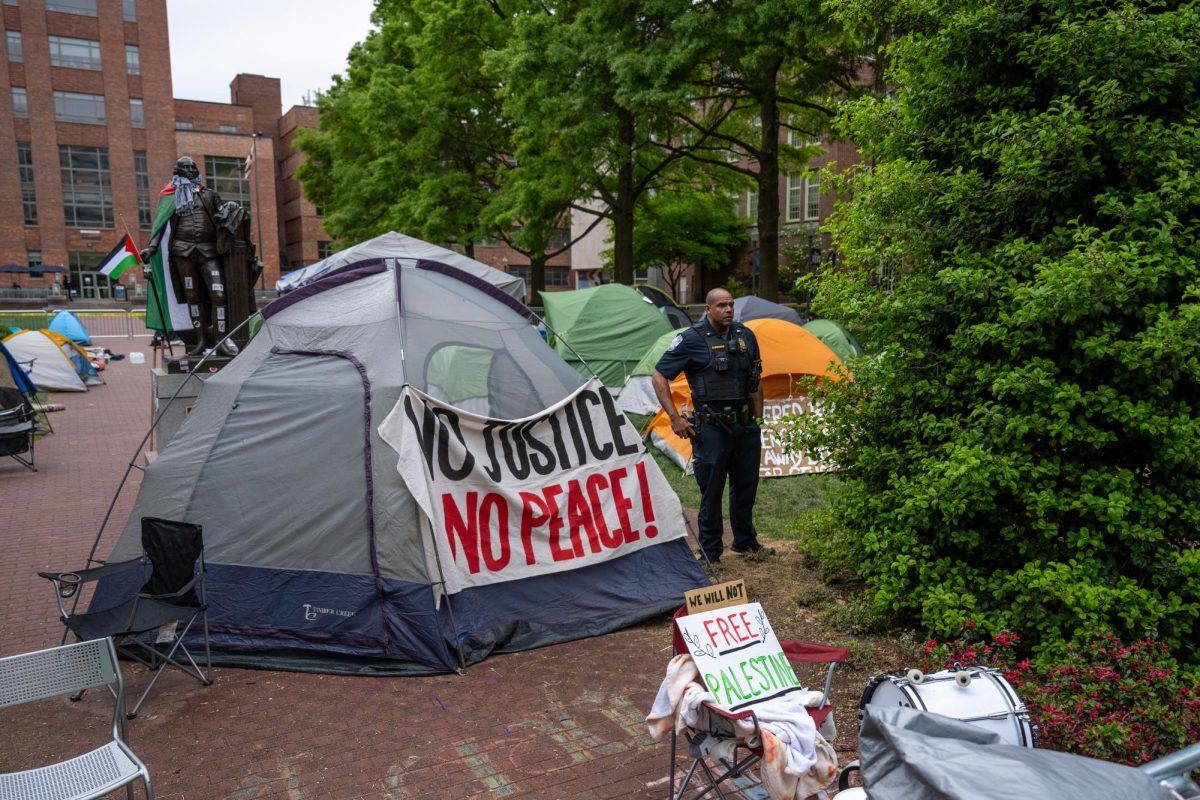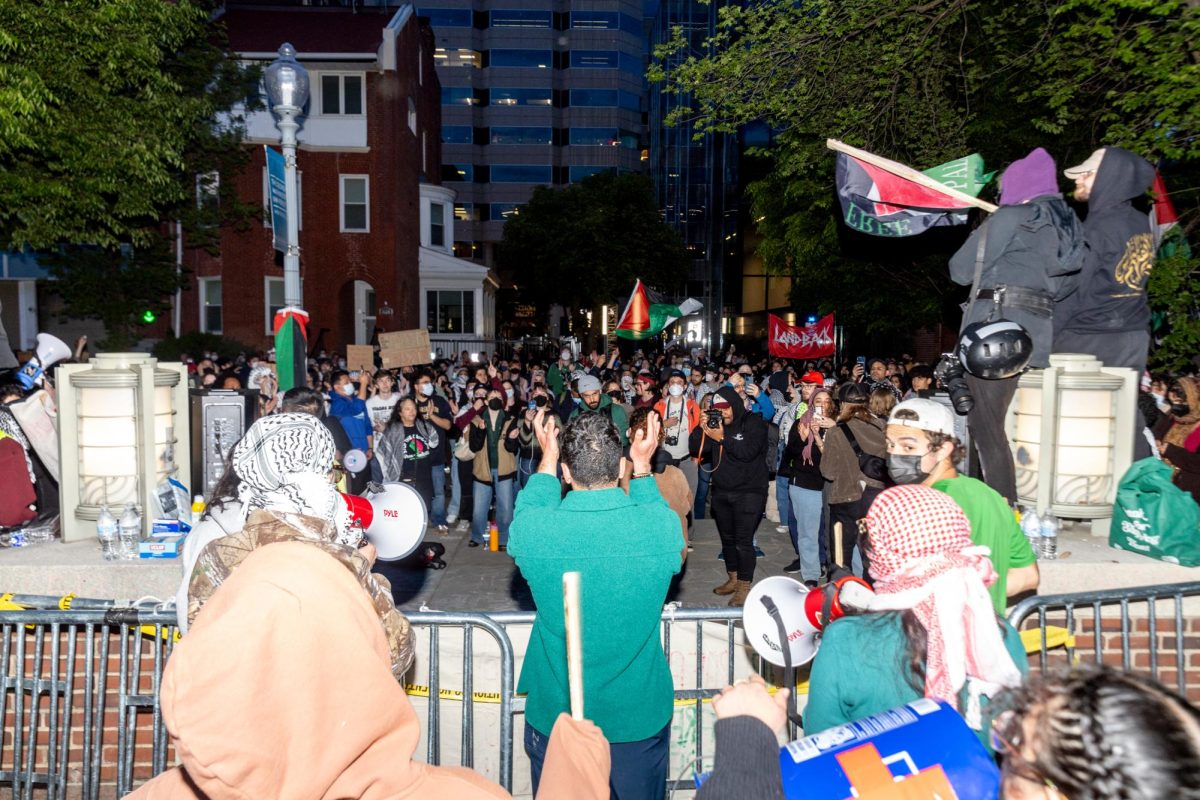Chaplain James J. Yee spoke Wednesday about his experiences serving 76 days in a Guantanamo Bay detention camp after being accused of espionage, spying and aiding alleged Taliban and Al-Qaeda prisoners.
The GW Islamic Society sponsored Yee’s visit to campus, which packed the Marvin Center’s Grand Ballroom with audience members interested in hearing Yee’s first-hand accounts of his stay in the controversial U.S. military prison.
The detainment camps in Cuba, which house individuals suspected of connections to terrorist groups, have received heavy criticism due to allegations of torture.
A Chinese-American and a practicing Muslim, Yee began his stay at Guantanamo’s naval base as the prison’s Muslim chaplain, before eventually becoming a prisoner himself.
Yee is a graduate of West Point Academy who said he proudly represented Muslims in the U.S. military. Yee said he went to Guantanamo to educate prisoners about Islam, as well as to ensure that all prisoners were free to practice their chosen religion while incarcerated.
Yee was recognized twice by U.S. military officials for his service at Guantanamo, but they became suspicious of Yee’s relationship with fellow Muslim prisoners and accused him of aiding U.S. enemies.
“When they saw us (the Muslims) pray or read the Koran, these things mirrored behaviors they saw in (Muslim) prisoners,” Yee said. “Many American Muslims were under suspicion.”
After nearly three months at Guantanamo’s naval base, the U.S. military acquitted Yee of all charges against him. Today, Yee spends time lecturing about Guantanamo, Islam, Asian-American and religious diversity issues as well as the challenge to protect both national security and civil liberties.
Yee also highlighted that many people have a misconception that there is a conflict between being both Muslim and American.
Freshman Nour El Houda Bouadis added that she thought Yee’s words were inspirational. “I have a better understanding after hearing him.”
Yee concluded by encouraging students to “educate yourselves about Guantanamo because you probably don’t realize that Guantanamo, Cuba, will be one of the biggest black marks in our nation’s history.”







